JANUARY
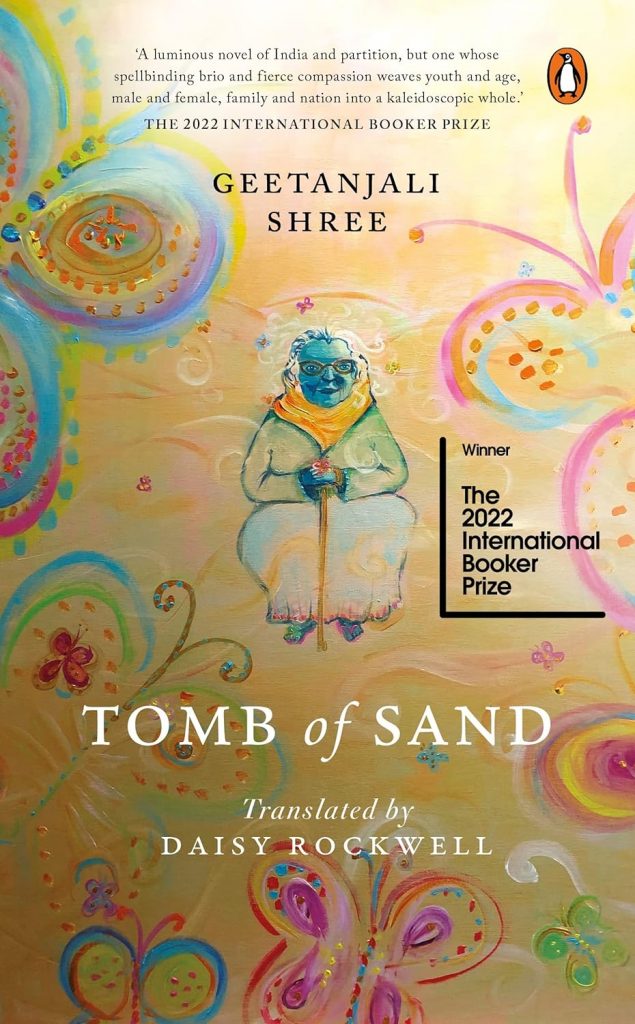
Tomb of Sand by Geetanjali Shree, translated from the Hindi by Daisy Rockwell (HarperVia, January 31)
A playful, feminist, and utterly original epic set in contemporary northern India, about a family and the inimitable octogenarian matriarch at its heart.
FEBRUARY
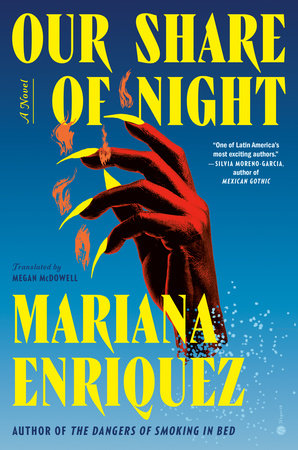
Our Share of Night by Mariana Enriquez, translated from the Spanish by Megan McDowell (Hogarth, February 7)
Moving back and forth in time, from London in the swinging 1960s to the brutal years of Argentina’s military dictatorship and its turbulent aftermath, Our Share of Night is a novel like no other: a family story, a ghost story, a story of the occult and the supernatural, a book about the complexities of love and longing with queer subplots and themes.
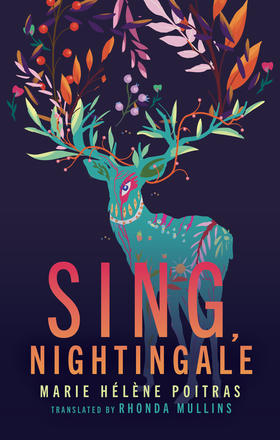
Sing, Nightingale by Marie Hélène Poitras, translated from the French (Quebec) by Rhonda Mullins (Coach House Books, February 14)
Peter Greenaway meets Angela Carter: a Gothic tale of secrets and revenge

The Strangers by Jon Bilbao, translated from the Spanish by Katie Whittemore (Dalkey Archive, February 21)
A deliciously tense and darkly humorous novella that explores the border that separates love from routine and offers a twist on theme of “the other” and how to live with the unknown, The Strangers introduces English readers to singular talent.
MARCH

Hospital by Han Song, translated from the Chinese by Michael Berry (AmazonCrossing, March 1)
A twisted, wildly imaginative tale of one man’s mysterious illness and his journey through a dystopian hospital system.
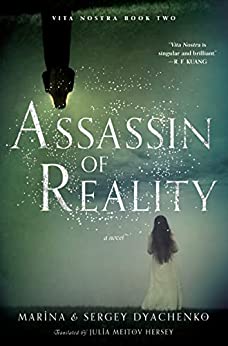
Assassin of Reality by Marina and Sergey Dyachenko, translated from the Russian by Julia Meitov Hersey (Harper Voyager, March 14)
The eagerly anticipated sequel to the highly acclaimed Vita Nostra takes readers to the next stage in Sasha Samokhina’s journey in a richly imagined world of dark academia in which grammar is magic—and not all magic is good.
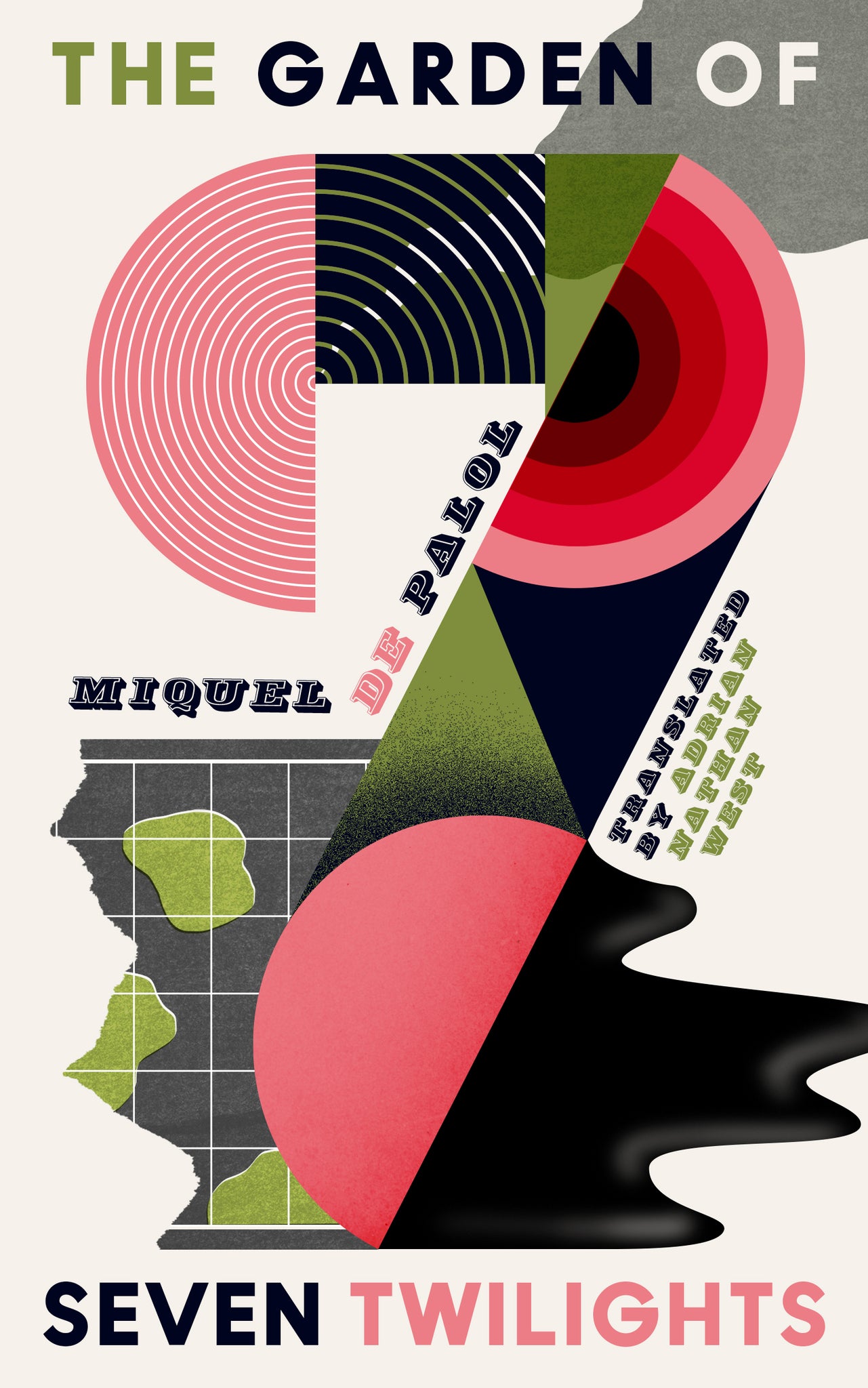
The Garden of Seven Twilights by Miquel de Palol, translated from the Catalan by Adrian Nathan West (Dalkey Archive, March 21)
During an atomic alarm in Barcelona in the year 2025, the thirty-year old hero takes refuge in a luxurious mansion in the mountains where he is put up, along with other guests, awaiting the outcome of the conflict. For the following seven days the residents of the mansion spend their spare time reading and taking walks , and, above all, telling stories to each other. The narrators (most of whom belong to the generation thirty years older than the hero’s) are eight in number, and the stories they tell can be taken as autonomous ones, although, as the novel advances, it may soon be that when juxtaposed, they do indeed weave a web of intrigue about a family of bankers—a web that gradually involves some of the guests in the mansion.

Ten Planets by Yuri Herrera, translated from the Spanish by Lisa Dillman (Gray Wolf Press, March 21)
In Ten Planets, Herrera’s consistent themes—the mutability of borders, the wounds and legacy of colonial violence, and a deep love of storytelling in all its forms—are explored with evident brilliance and delight.
APRIL

No Edges: Swahili Stories by various authors and translators (Two Lines Press, April 11)
Swahili is the future. The first collection of Swahili fiction in English translation, No Edges introduces eight East African writers from Tanzania and Kenya as they share tales of sorcerers, Nairobi junkyards, cross-country bus rides, and spaceships that blast prisoners into eternity. Here we’re encouraged to explore the chaos of life on a crowded Earth, as well as the otherworldly realms lying just beyond our reach. Through language bursting with rhythm and vivid African futurist visions, these writers summon the boundless future into being.

Hit Parade of Tears by Izumi Suzuki, translated from the Japanese by Sam Bett, David Boyd, Daniel Joseph and Helen O’Horan (Verso Books, April 11)
Izumi Suzuki had ideas about doing things differently, ideas that paid little attention to the laws of physics, or the laws of the land. In this new collection, her skewed imagination distorts and enhances some of the classic concepts of science fiction and fantasy.
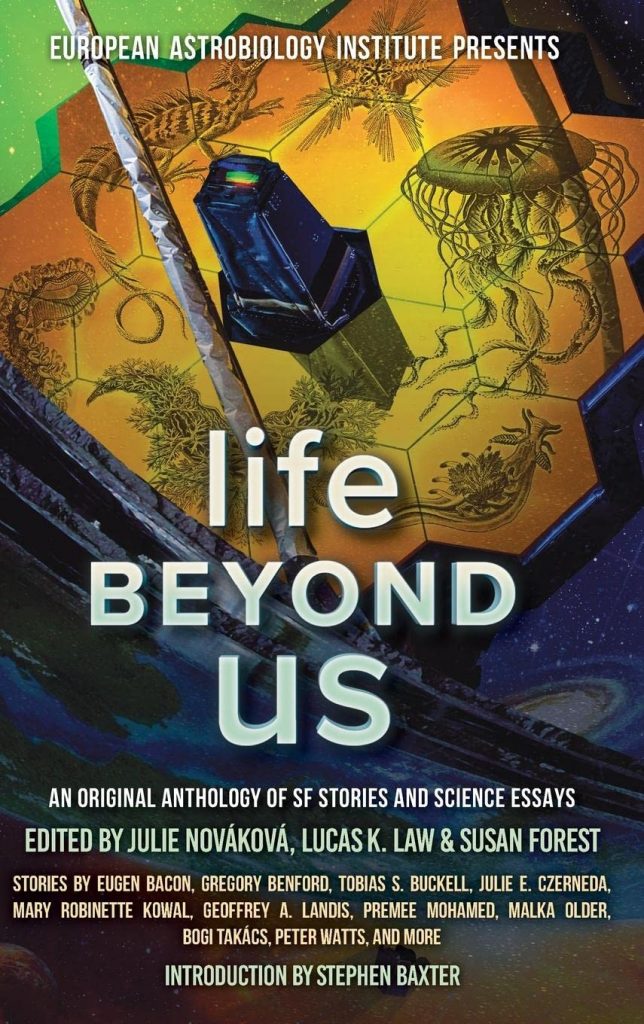
Life Beyond Us: An Original Anthology of SF Stories and Science Essays, edited by Julie Nováková, Lucas K. Law, and Susan Forest (Laksa Media Group)
Dive in as the European Astrobiology Institute presents fifty-four original SF stories and science essays on life, from microbial to macro, from automatic to sagacious. Each speculative story is followed by a professional essay illuminating the scientific underpinnings of the story and providing a new window into the cutting-edge knowledge about exploration for life in the universe.
MAY

Everything is Ori by Paul Serge Forest, translated from the French (Quebec) by David Warriner (QC Fiction, May 1)
The Lelarge family quietly runs its little seafood empire from Quebec’s North Shore. But when an elegant visitor is dispatched by a mysterious Japanese conglomerate to their isolated fishing village, things will never be the same again. Because Mori Ishikawa has a secret invention: Ori. And it’s destined to change the course of human history.
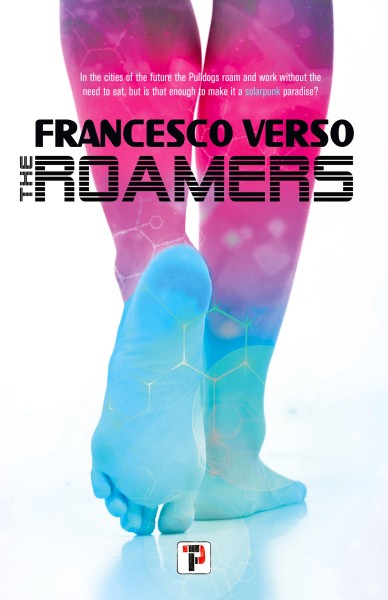
The Roamers by Francesco Verso, translated from the Italian by ? (Flame Tree Press, May 9)
The pulldogs, a group of people at the twilight of Western civilisation, undergo an anthropological transformation caused by the dissemination of nanites (nanorobots capable of assembling molecules to create matter). This technology changes the way they eat and gives rise to a culture which, while reminiscent of an ancient nomadic society, is creative and new. Liberation from the imperative of food, combined with the ability to 3D print objects and use cloud computing, makes it possible for the pulldogs to make a choice that seems impossible and anachronistic – a new life, but is it really an Arcadia?
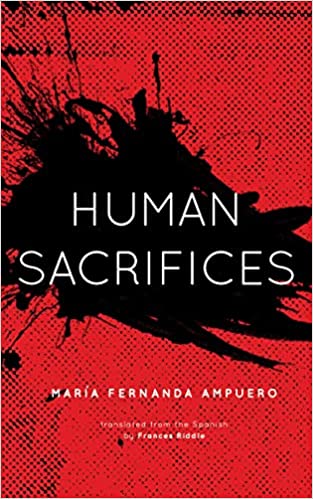
Human Sacrifices by María Fernanda Ampuero, translated from the Spanish (Ecuador) by Frances Riddle (The Feminist Press, May 16)
An undocumented woman answers a job posting only to find herself held hostage, a group of outcasts obsess over boys drowned while surfing, and an unhappy couple finds themselves trapped in a terrifying maze. With scalpel-like precision, Ampuero considers the price paid by those on the margins so that the elite might lounge comfortably, considering themselves safe in their homes. Simultaneously terrifying and exquisite, Human Sacrifices is “tropical gothic” at its finest―decay and oppression underlie our humid and hostile world, where working-class women and children are consistently the weakest links in a capitalist economy. Against this backdrop of corrosion and rot, these twelve stories contemplate the nature of exploitation and abuse, illuminating the realities of those society consumes for its own pitiless ends.
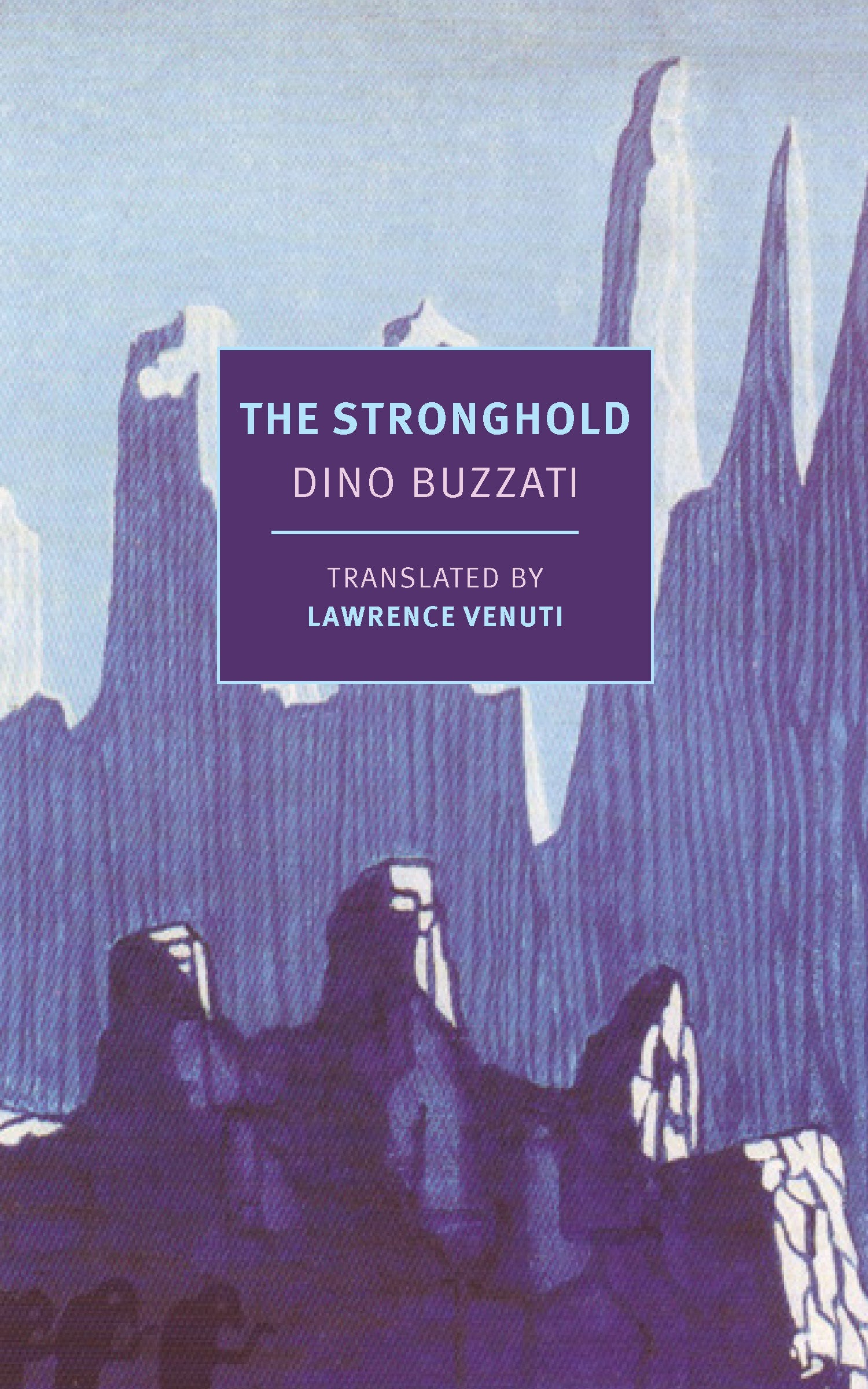
The Stronghold by Dino Buzzati, translated from the Italian by Lawrence Venuti (May 23)
Buzzati is one of the great Italian writers of the twentieth century, renowned for his fantastical imagination and for a touch that is as lyrical as it is light. The Stronghold, previously translated as The Tartar Steppe, is his most celebrated work, a book that has been read as a veiled attack on Mussolini’s fascist militarism, a prophetic allegory of the Cold War, and an existentialist fable.
JUNE
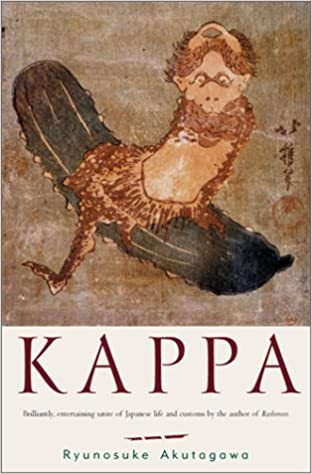
Kappa by Ryunosuke Akutagawa, translated from the Japanese by Lisa Hofmann-Kuroda and Allison Markin Powell (New Directions, June 6)
The Kappa is a creature from Japanese folklore known for dragging unwary toddlers to their deaths in rivers: a scaly, child-sized creature, looking something like a frog, but with a sharp, pointed beak and an oval-shaped saucer on top of its head, which hardens with age. Akutagawa’s Kappa is narrated by Patient No. 23, a madman in a lunatic asylum: he recounts how, while out hiking in Kamikochi, he spots a Kappa. He decides to chase it and, like Alice pursuing the White Rabbit, he tumbles down a hole, out of the human world and into the realm of the Kappas. There he is well looked after, in fact almost made a pet of: as a human, he is a novelty. He makes friends and spends his time learning about their world, exploring the seemingly ridiculous ways of the Kappa, but noting many—not always flattering—parallels to Japanese mores regarding morality, legal justice, economics, and sex. Alas, when the patient eventually returns to the human world, he becomes disgusted by humanity and, like Gulliver missing the Houyhnhnms, he begins to pine for his old friends the Kappas, rather as if he has been forced to take leave of Toad of Toad Hall…
The White City Tale by Jeong-Hwa Choi, translated from the Korean by Janet Hong (Restless Books, June 6)
Award-winning South Korean author Choi Jeong-Hwa’s English-language debut, The White City Tale is a powerful exploration of existence, social hierarchies, and resilience as one man fights against a system of inequalities in a quarantined city as a pandemic of bodily and mental erasure rages.

Nineteen Claws and a Black Bird by Agustina Bazterrica, translated from the Spanish by Sarah Moses (Scribner, June 20)
From celebrated author Agustina Bazterrica, this collection of nineteen brutal, darkly funny short stories takes into our deepest fears and through our most disturbing fantasies. Through stories about violence, alienation, and dystopia, Bazterrica’s vision of the human experience emerges in complex, unexpected ways—often unsettling, sometimes thrilling, and always profound. In “Roberto,” a girl claims to have a rabbit between her legs. A woman’s neighbor jumps to his death in “A Light, Swift, and Monstrous Sound,” and in “Candy Pink,” a woman fails to contend with a difficult breakup in five easy steps.

Crooked Plow by Itamar Vieira Junior, translated from the Spanish (Mexico) by Johnny Lorenz (Verso Books, June 27)
Deep in Brazil’s neglected Bahia hinterland, two sisters find an ancient knife beneath their grandmother’s bed and, momentarily mystified by its power, decide to taste its metal. The shuddering violence that follows marks their lives and binds them together forever.
JULY
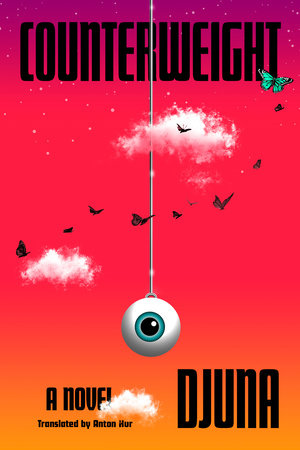
Counterweight by Djuna, translated from the Korean by Anton Hur (Pantheon, July 11)
For fans of the worlds of Philip K. Dick, Squid Game, and Severance: An absorbing tale of corporate intrigue, political unrest, unsolved mysteries, and the havoc wreaked by one company’s monomaniacal endeavor to build the world’s first space elevator—from one of South Korea’s most revered science fiction writers, whose identity remains unknown.
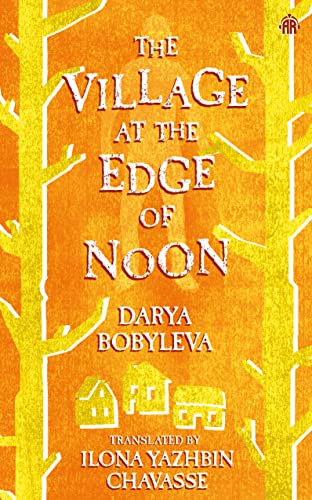
The Village at the Edge of Noon by Darya Bobyleva, translated from the Russian by Ilona Chavasse (Angry Robot, July 25)
Everything you were afraid to find out about the heat of noon and grandma’s old tales comes together in this English language debut of an award-winning and bestselling young Russian writer.
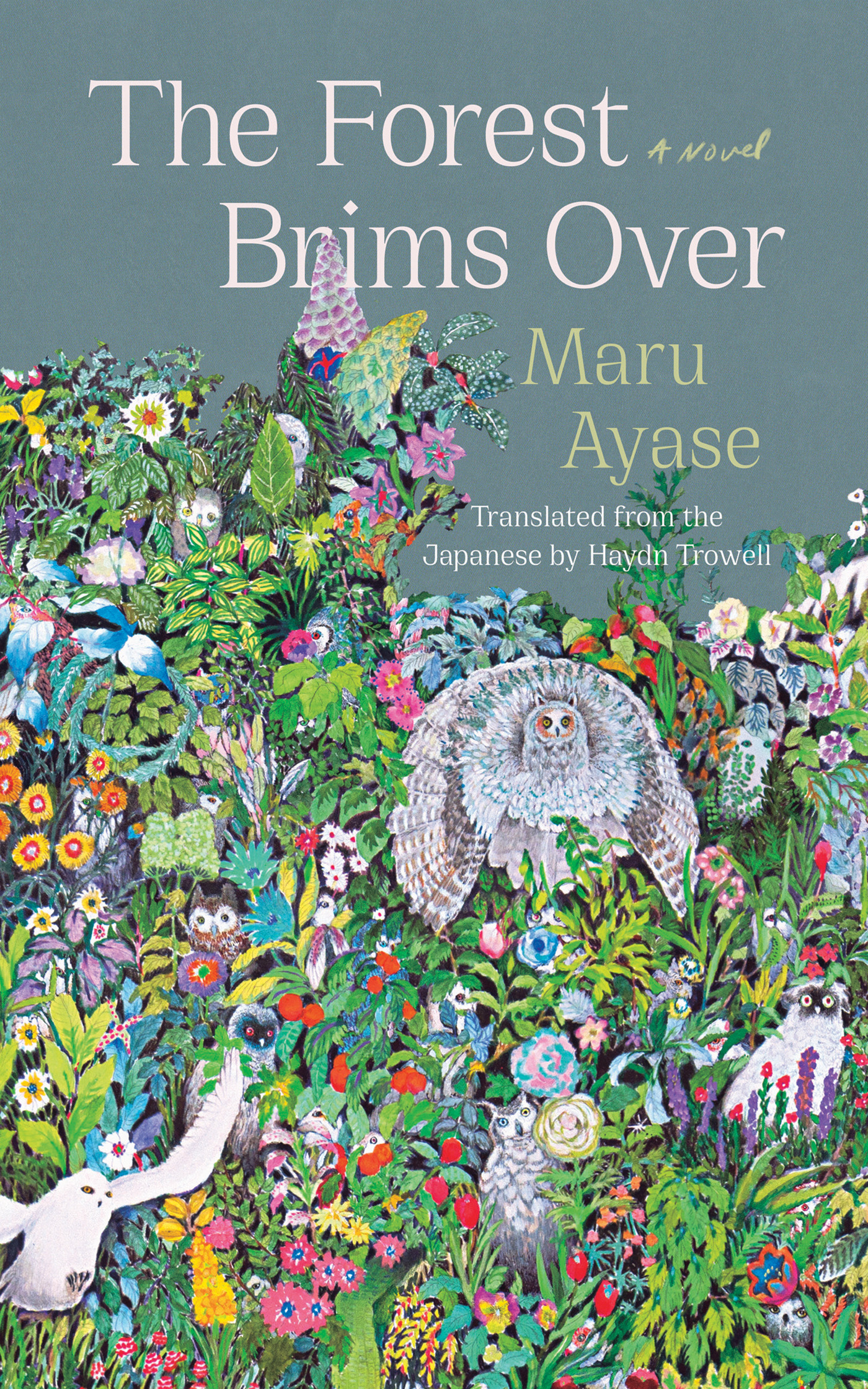
The Forest Brims Over by Maru Ayase, translated from the Japanese by Haydn Trowell (Counterpoint, July 25)
A woman turns herself into a forest after long being co-opted to serve as the subject of her husband’s novels—this surrealist fable challenges traditional gender attitudes and exploitation in the literary world.
AUGUST

The Kindness by John Ajvide Lindqvist, translated by Marlaine Delargy (riverrun, August 3)
A shipping container is mysteriously dumped in the Swedish port town of Norrtalje. Due to their ignorance of its ownership it isn’t until a week has passed that the authorities can have it forced open. There the remains of twenty eight refugees are found, a situation of unrelenting horror. Not only that; a black sludge pours out which contaminates the river and is the cause of a new, sickening dread that affects Norrtalje’s inhabitants, causing a lack of trust, aggression, violence. It seems like an end to Kindness. Six characters are at the centre of this extraordinary novel, six people in search of love and connection, whose extraordinary qualities will confront the metaphysical illness consuming their town.
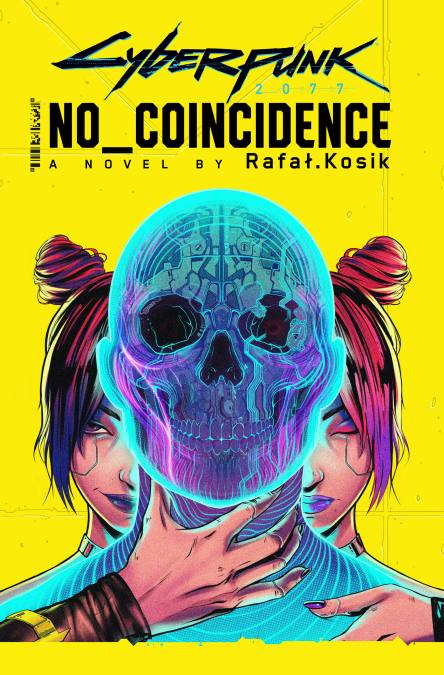
Cyberpunk 2077 by Rafal Kosik, translated from the Polish by Stefan Kielbasiewicz (Orbit, August 8)
Written by acclaimed Polish science fiction writer and screenwriter Rafał Kosik, the electrifying novel follows a group of strangers as they discover that the dangers of Night City are all too real.
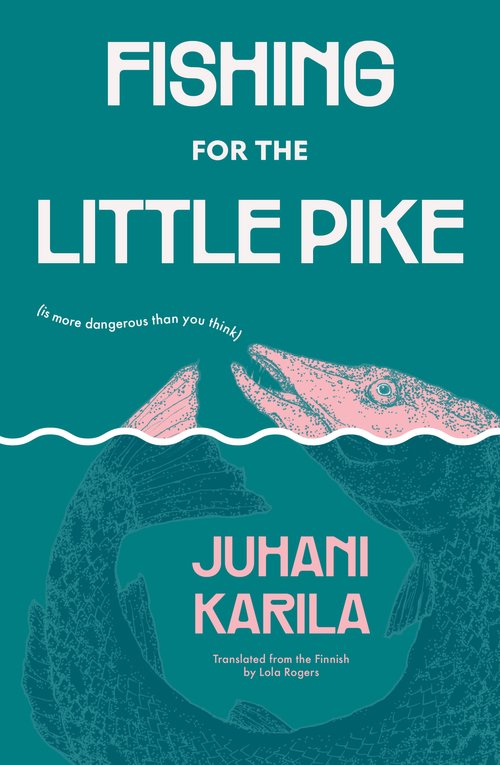
Fishing for the Little Pike by Juhani Karila, translated from the Finnish by Lola Rogers (Restless Books, August 15)
Winner of the Jarkko Laine Literature Prize
In the utterly original, genre-defying, English-language debut of Finnish author Juhani Karila, a young woman’s annual pilgrimage to her home in Lapland to catch an elusive pike in three days is complicated by a host of mythical creatures, a murder detective hot on her trail, and a deadly curse hanging over her head.
SEPTEMBER
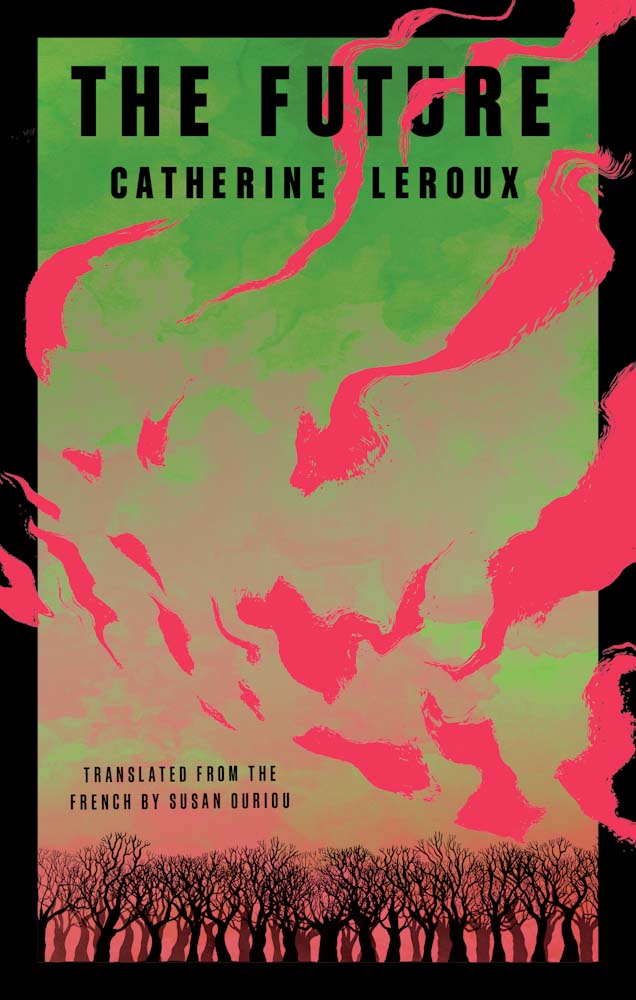
The Future by Catherine Leroux, translated from the French (Quebec) by Susan Ouriou (Biblioasis, September 5)
In an alternate history of Detroit, the Motor City was never surrendered to the US. Its residents deal with pollution, poverty, and the legacy of racism—and strange and magical things are happening: children rule over their own kingdom in the trees and burned houses regenerate themselves. When Gloria arrives looking for answers and her missing granddaughters, at first she finds only a hungry mouse in the derelict home where her daughter was murdered. But the neighbours take pity on her and she turns to their resilience and impressive gardens for sustenance. When a strange intuition sends Gloria into the woods of Parc Rouge, where the city’s orphaned and abandoned children are rumored to have created their own society, she can’t imagine the strength she will find. A richly imagined story of community and a plea for persistence in the face of our uncertain future, The Future is a lyrical testament to the power we hold to protect the people and places we love—together.
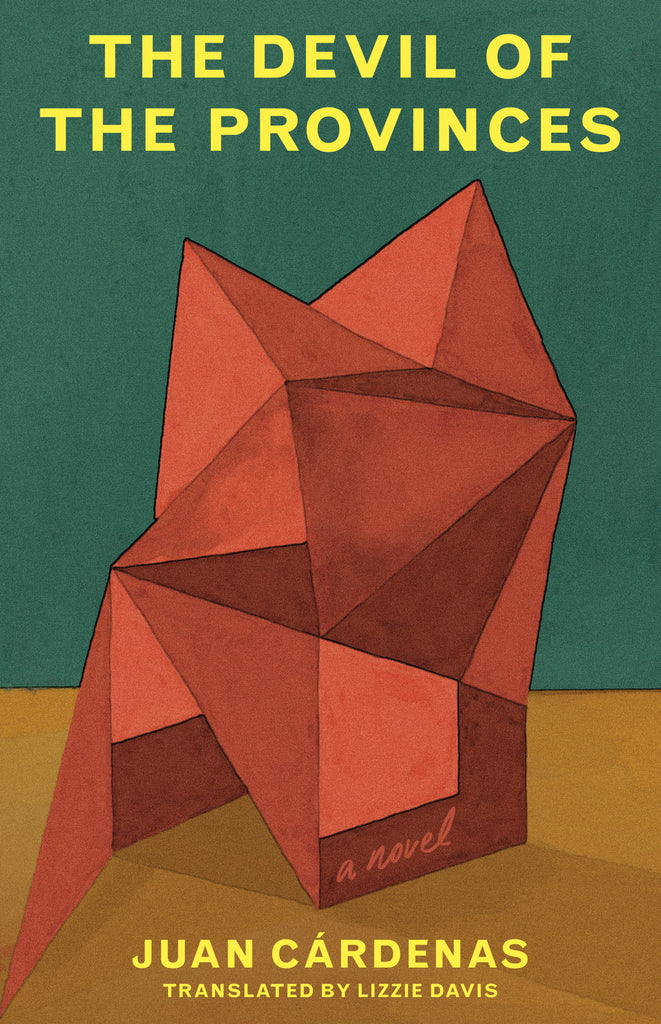
The Devil of the Provinces by Juan Cárdenas, translated from the Spanish by Lizzie Davis (Coffee House Press, September 12)
After a series of failures, a biologist returns to his hometown to live with his grieving mother. But in this gripping crime novel that upends the genre’s conventions, strange events unravel what he thought he knew of his past, his present, and himself.

The Court of Shadows by Victor Dixen, translated from the French by Françoise Bui (Amazon Crossing, September 19)
A fiery heroine seeks vengeance against a royal court of deadly vampires in this epic alternate history set in lavish Versailles.
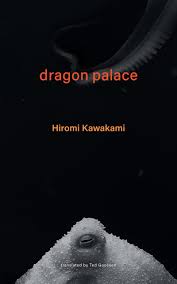
Dragon Palace by Hiromi Kawakami, translated from the Japanese by Ted Goossen (Stone Bridge Press, September 19)
From the bestselling author of Strange Weather in Tokyo comes this otherworldly collection of eight stories, each a masterpiece of transformation, infused with humor, sex, and the universal search for love and beauty—in a world where the laws of time and space, and even species boundaries, don’t apply. Meet a shape-shifting con man, a goddess who uses sex to control her followers, an elderly man possessed by a fox spirit, a woman who falls in love with her 400-year-old ancestor, a kitchen god with three faces in a weasel-infested apartment block, moles who provide underground sanctuary for humans who have lost the will to live, a man nurtured through life by his seven extraordinary sisters, and a woman who is handed from husband to husband until she is finally able to return to the sea.
OCTOBER

Godzilla and Godzilla Raids Again by Shigeru Kayama, translated from the Japanese by Jeffrey Angles (University of Minnesota Press, October 3)
The first English translations of the original novellas about the iconic kaijū Godzilla.

On the Isle of Antioch by Amin Maalouf, translated from the French by Natasha Lehrer (World Editions, October 3)
Alec, a press artist with an impressive track record, settles on a remote island in the Atlantic Ocean. He has little contact with his neighbor, a solitary woman who wrote a cult book years ago, before withdrawing from public life. That is, until a gigantic power failure cuts them off from the rest of the world, and all of a sudden they find themselves dependent on each other. The world appears to be on the brink of nuclear war and the collapse of civilization seems imminent. Just who are the mysterious friends of Empedocles, the gang of otherworldly protectors who came swooping in to interfere with the US presidency and cure all illness? Should we trust them? On the Isle of Antioch is a suspenseful novel with mythological roots, written in the dreamy language of the classics, by internationally renowned scholar Amin Maalouf.
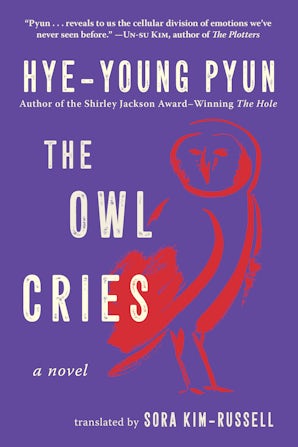
The Owl Cries by Hye-young Pyun, translated from the Korean by Sora Kim-Russell (Skyhorse Publishing, October 3)
A disappearance. A missing brother. A lawyer asking questions. And a vast forest in the mountains—the western woods—where the trees huddle close together emanating a crushing darkness and a chill dampness fills the air. The ranger, In-su Park, who lives nearby with his family, is a recovering alcoholic. He claims no knowledge of the man who disappeared, even though the missing man had worked as the ranger just before him. In the little village down the mountain, the shopkeepers will do the same and deny they ever saw or knew the man, though they’re less convincing; and his former supervisor at the Forestry Research Center, Professor Jin, dismisses his importance. But when an accident and a death derail the investigation and someone attempts to break into his office, In-su Park finds himself conducting his own inquiry into the goings-on deep in the heart of the western woods—spurred by the mysterious words he discovers on a piece of paper beneath his desk: “In the forest the owl cries.”
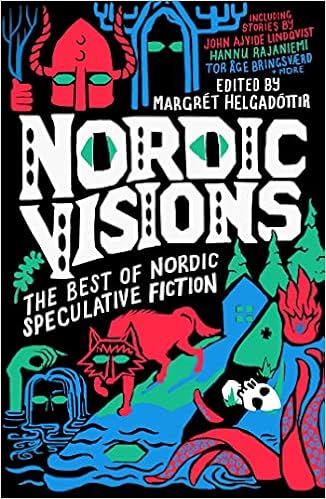
Nordic Visions, ed. Margrét Helgadóttir, various translators (Rebellion Publishing, October 10)
Storytelling has been a major force in the Nordic countries for thousands of years, renowned for its particular sense of dark humour, featuring pacts with nature and a view of the worlds you seldom find in other places. Featuring 16 stories across fantasy, science fiction and horror from the best contemporary speculative authors from Finland, Sweden, Denmark, Norway, Iceland, and The Faroe Islands, many in English for the very first time, Nordic Visions edited by Margrét Helgadóttir is out this October.
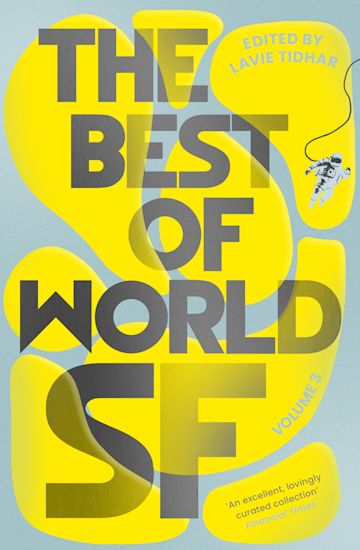
The Best of World SF 3, ed. Lavie Tidhar, various translators (Head of Zeus, October 12)
In this third installment, you’ll discover alien artists, rioting dinosaurs, shape-shifting rabbits, heartbreak-harvesting cafes and one robot on a quest for meaning. You will be transported to the stars and back down to Earth and sideways, with the order of the world turned upside down. Featuring authors from Austria, Bulgaria, China, Finland, Ghana, Greece, India, Korea, Malaysia, Mexico, the Netherlands, Nigeria, Pakistan, Palestine, the Philippines, Portugal, Russia, Singapore and South Africa, this collection’s stories have been selected by award-winning writer, editor and World SF expert Lavie Tidhar.
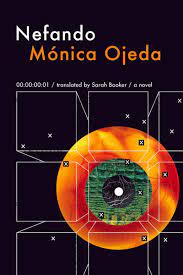
Nefando by Mónica Ojeda, translated from the Spanish (Ecuador) by Sarah Booker (Coffee House Press, October 24)
Six young artists share an apartment in Barcelona: Kiki Ortega, a researcher writing a pornographic novel; Iván Herrera, a writer whose prose reveals a deeply conflicted relationship with his body; three siblings, Irene, Emilio, and Cecilia, who quietly search for ways to transcend their abuse as children; and El Cuco Martínez, a video-game designer whose creations push beneath the substrate of the digital world. All of them are connected in different ways to Nefando, a controversial cult video game whose purpose remains a mystery. In the parallel reality of the game, players found relief from the pain of past trauma and present shame, but also a frighteningly elastic sense of self and ethics. Is Nefando a game for horror enthusiasts, a challenge to players’ morals, or a poetic exercise? What happens in a virtual world that admits every taboo?
NOVEMBER
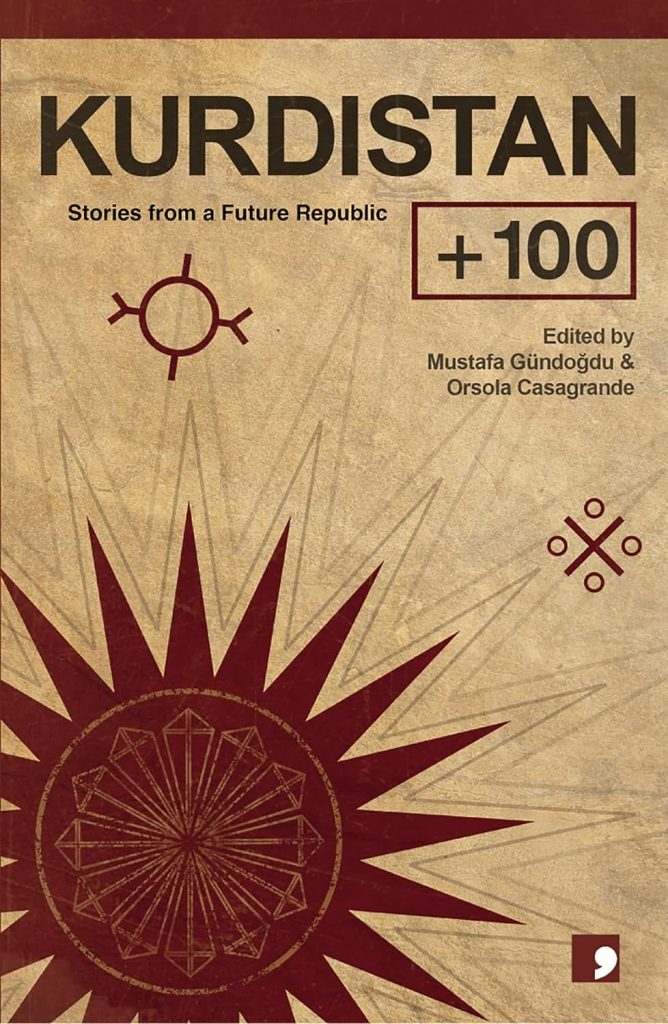
Kurdistan + 100: Stories from a Future State, edited by Orsola Casagrande and Mustafa Gundogdu (Comma Press, November 2)
Kurdistan + 100 poses a question to contemporary Kurdish writers: Might the Kurds one day have a country to call their own? With 13 stories all set in the year 2046 – exactly a century after the first glimmer of Kurdish independence, the short-lived Republic of Mahabad – this book offers a space for new expressions and new possibilities in the ongoing struggle for self-determination. Featuring stories by: Qadir Agid, Yildiz Cakar, Selahattin Demirtas, Omer Dilsoz, Muharrem Erbey, Nariman Evdike, Ava Homa, Hüseyin Karabey, Karzan Kardozi, Sema Kaygusuz, Meral Simsek, Jahangir Mahmoudveysi, and Jîl Şwanî.
DECEMBER
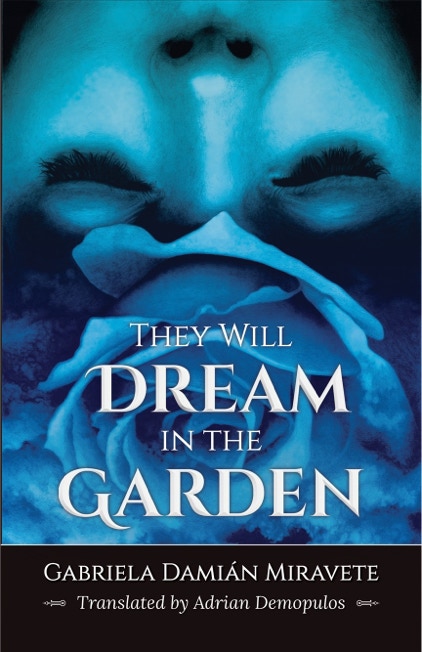
They Will Dream in the Garden by Gabriela Damián Miravete, translated from the Spanish (Mexico) by Adrian Demopulos (Rosarium Publishing, December 5)
Otherwise Award-winning author, Gabriela Damián Miravete elaborates the disconcerting experience of living as a woman in Mexico—a territory characterized by its great contrasts, from violence and activism to affectionate and communal resistance: flowers that arise from the earth to expand the cosmic consciousness of those who take it, nuns who create artifacts so that their native languages do not perish, a memorial for the victims of femicide that the State controls, but whose old guardian wants to turn into a laboratory to return their lost future…
